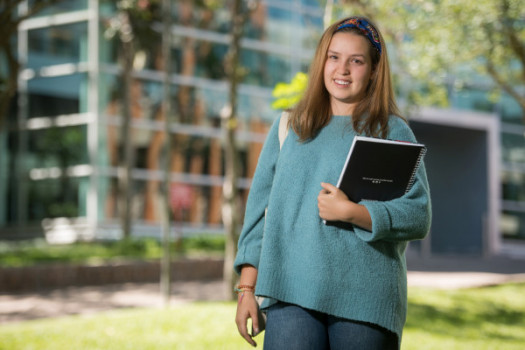International experience close by
PUCRS is partners with more than 60 universities from Argentina, Chile, Colombia, Spain, Mexico, Peru and Uruguay
THE reasons that drive students to embark on an international experience are manifold. A large number of factors come at play when deciding on the destination, such as the geographical distance, cultural proximity, language identification, sharing of similar habits as well as money. Spanish-speaking countries seem to be a reasonable choice for those who want to have an international experience without traveling long distances.
PUCRS has a large number of partnerships, cooperation agreements, memorandums of understanding and addenda for specific projects with more than 60 universities, as well as institutions such as NGOs and colleges from Argentina, Chile, Colombia, Spain, Mexico, Peru and Uruguay. There are nine other agreements with these countries currently underway.
These partnerships serve to promote the exchange of professors and researchers, students, academic mobility programs, officialization, implementation and development of joint research projects, promotion of cultural and scientific events, knowledge exchange and academic publications.
IN and OUT
Since 2009, PUCRS has opened its doors to 306 students from these countries, except for Peru, its most recent mobility partner. As many as 300 of our students packed their bags to go on an exchange to Latin America and Spain. The Dean of International and Institutional Affairs (AAII), Dr Heloísa Delgado, adds that the institution is keen on expanding the number of agreements with Latin America and increasing the number of students on incoming and outgoing academic mobility in these countries. “We have promoted the partner countries in every class and we highlighted the positive aspects of Latin America. We talked about the region, its attractions and the advantages of studying in a neighboring country. To strengthen ties between us is one of the priorities in our strategic plan for the coming years.”
AAII’s administrative coordinator, Sandra Becker, is in charge of setting up partnerships with Latin American universities. “Because I come from Argentina, I am very proud to collaborate with this strategic project for strengthening the ties and prospecting bilateral agreements. We need to find out more about the potential of neighboring countries and vice-versa. We need to find out more about one another, after all we are sister nations. We are stronger together.”
Geographic and historical proximity
Laura Ortega, 23, a junior Psychology major at PUCRS chose Argentina as a destination for an international academic experience. She has been selected for a Santander Universidades grant. She arrived in Buenos Aires at the end of July and is expected to stay there until the first week in December.
Cultural adaptation is a continuous and ongoing process and, perhaps, her biggest challenge. “I’ve learned a lot about sharing, independence and freedom. I share an apartment with two French girls and a Peruvian one. It’s important to respect each other’s space and, most importantly, to be respected. Back in Brazil, I lived with my parents and was completely oblivious of trivial issues since I had someone there to help me. I feel that the responsibilities I have here make me feel free”, says she.
In the academic realm, Laura highlights the importance of learning something she loves under another perspective. “I can see new visions of world all the time and I am making improvements not only in Spanish but also in English”, claims she. What I have to say to those who are considering going on an exchange program is: “Open your heart to a new culture and show respect to the new country without judging it. Study the local language, before and during the exchange.”
Hands-on work in Brazil

Eva Crispín came from Spain to study Advertising at PUCRS
Eva Crispín, 20, a student at Universidad de Vigo (Spain), has been in Porto Alegre since July 2017 for a one-year exchange at PUCRS. The courses that were offered and the possibility to do courses in other academic areas were some of the reasons that brought her to PUCRS. “In Galicia, I study Advertising and Public Relations, as a one-degree program. But I want to focus on Advertising only. PUCRS gives me the chance to work on Advertising alone. I also want to study people’s behavior and next semester I want to do Psychology courses”, tells she.
As a senior year student, Eva adds that one of the most striking differences in higher education between the two countries is the engagement with practicum work. In her view, in Spain you will always see students carry a lot of books around as classes are mostly theoretical and students are subject to many more written exams. Laura approves of the practicum work done at PUCRS, in addition to theory and individual tests, and is excited about doing an internship. “It is hard to find a balance between work and study in Spain. Here, students can do an internship during the course of their study. As I am not allowed to paid work, according to my visa regulations, I intend to do a mandatory non paid internship instead”, plans she.
Eva will not hesitate to encourage people to have a study abroad experience. “Traveling across the ocean alone, speaking a different language, meeting people, understanding how things work, makes me grow as a person and as an advertiser. I will have lots of stories to tell and be better prepared for the market when I return”, says she.




